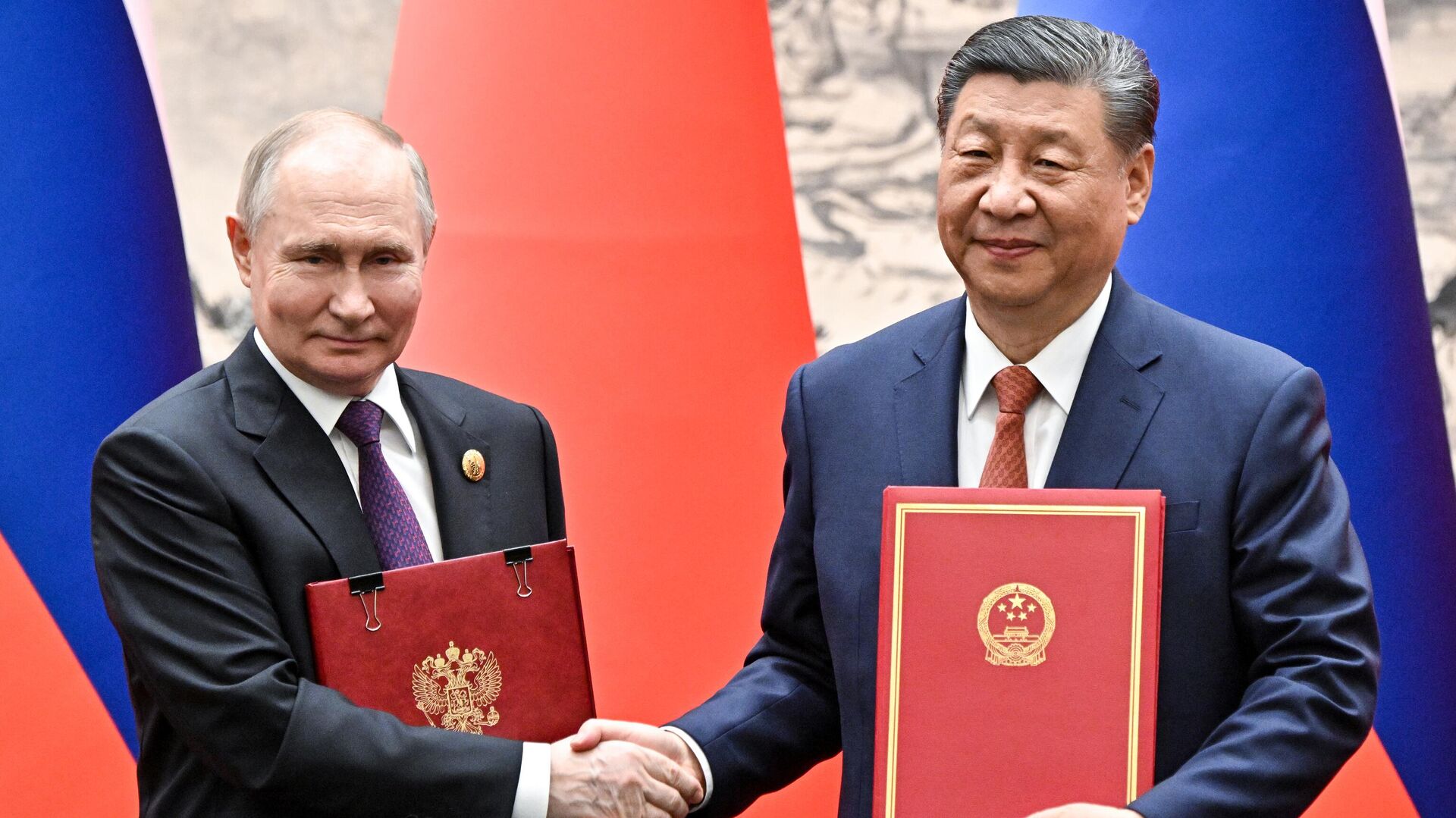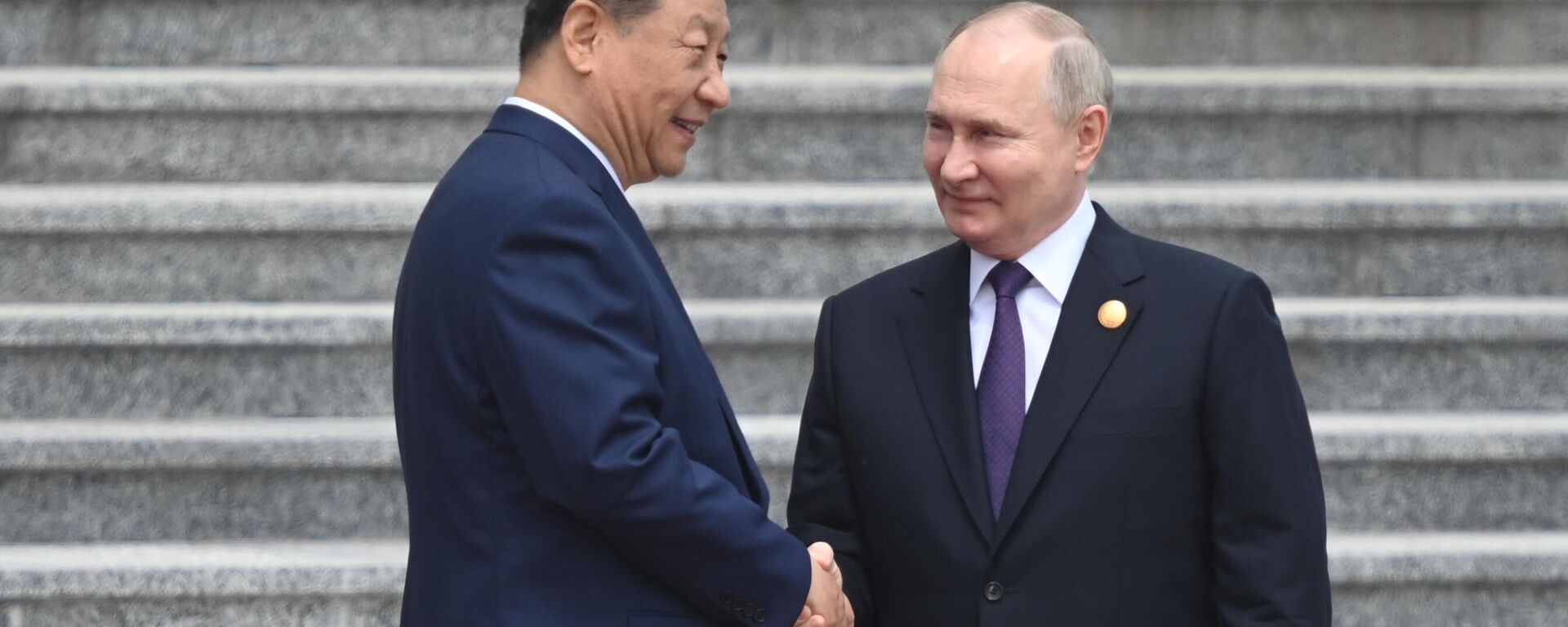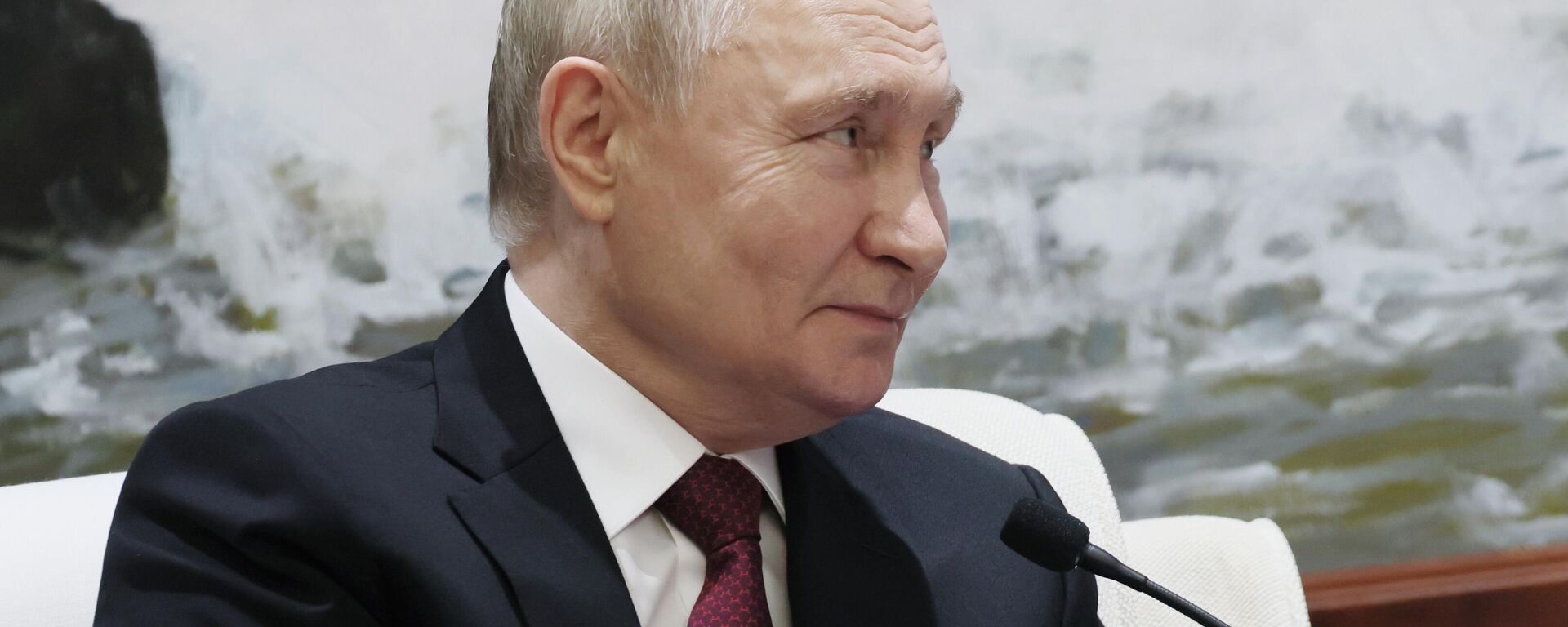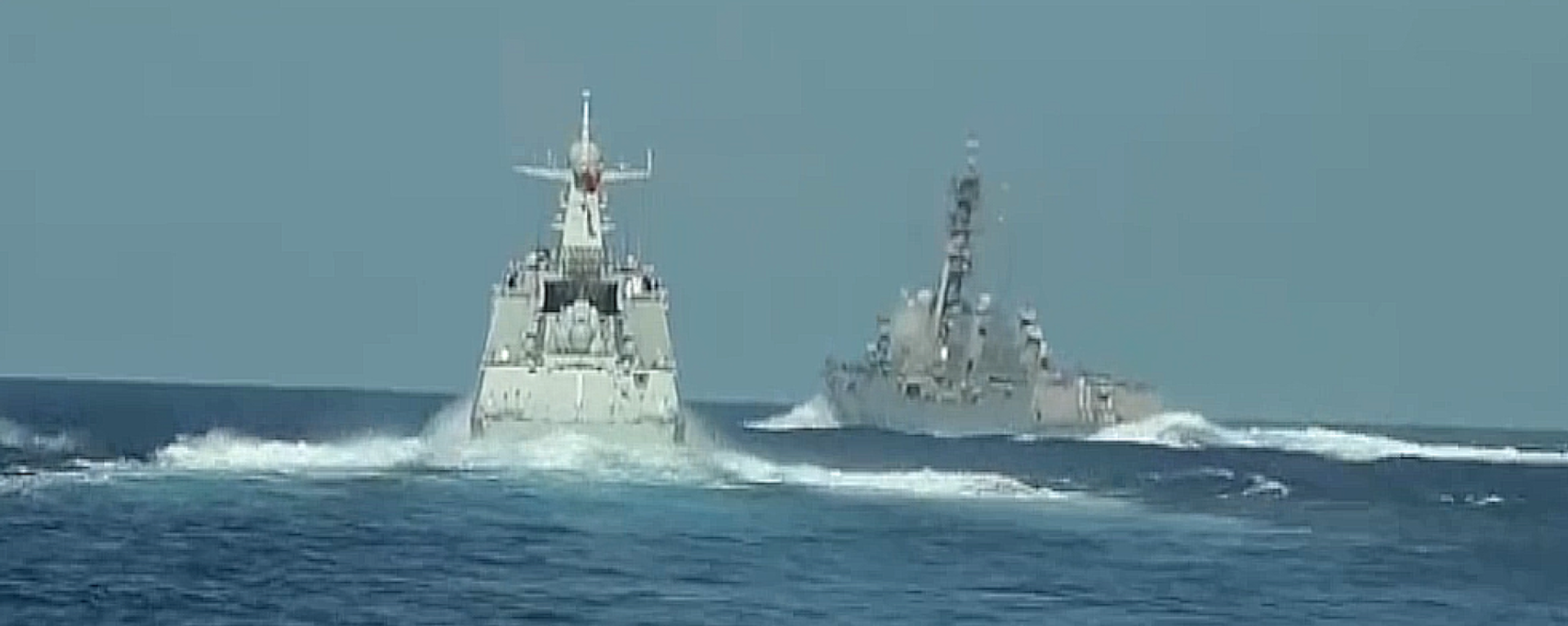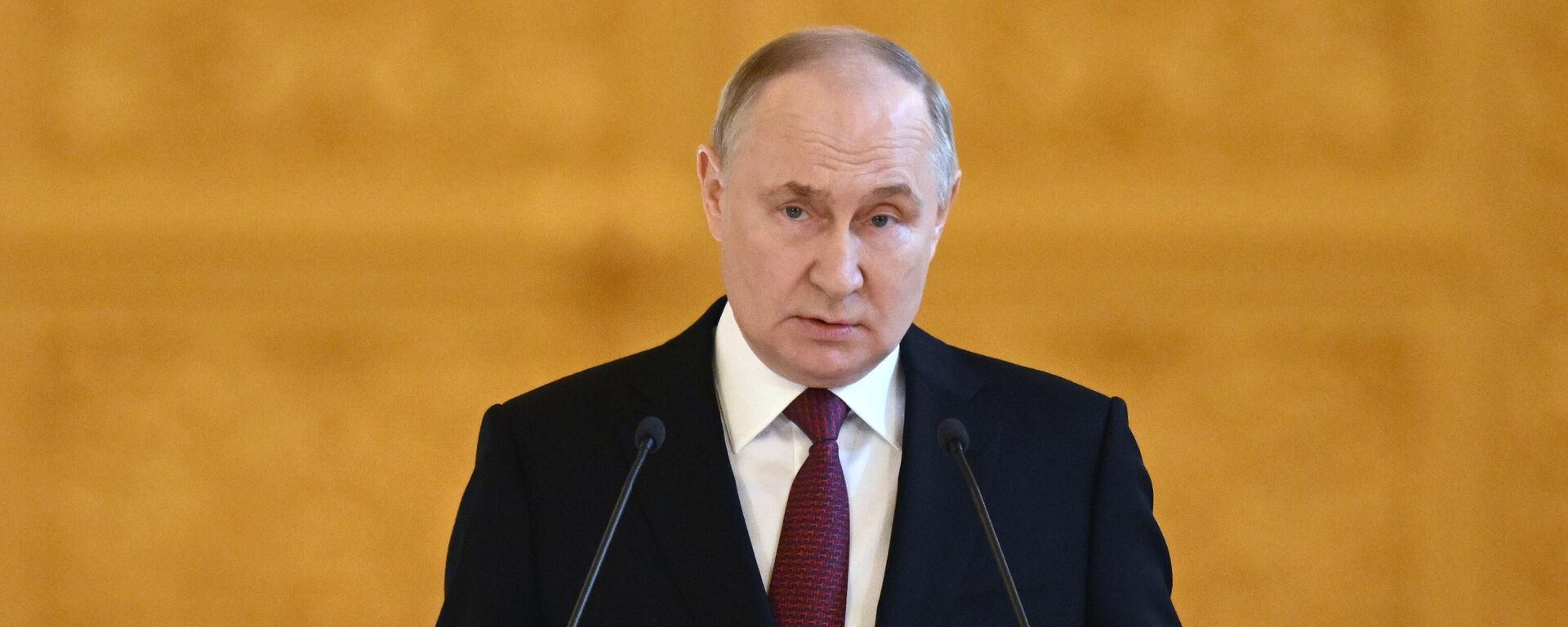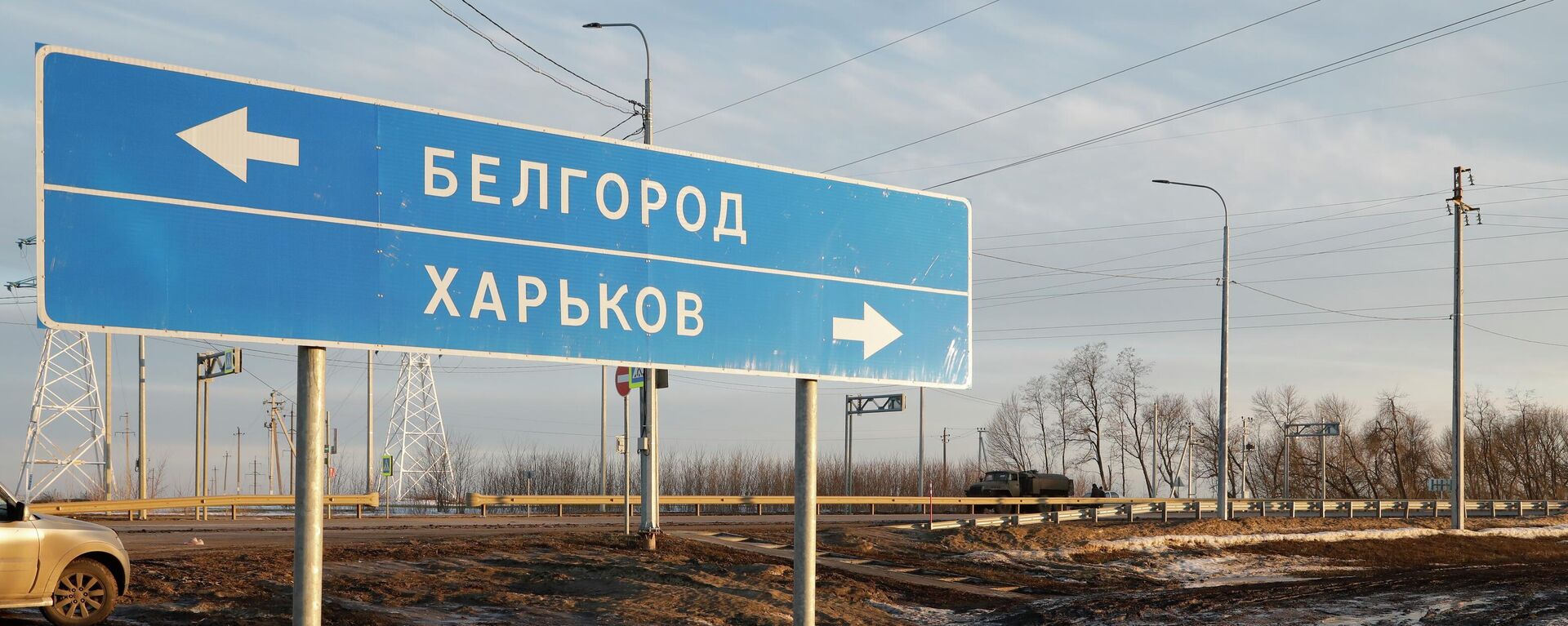https://sputnikglobe.com/20240517/putins-trip-sends-message-of-growing-russo-chinese-partnership-1118504260.html
Putin's Trip Sends Message of Growing Russo-Chinese Partnership
Putin's Trip Sends Message of Growing Russo-Chinese Partnership
Sputnik International
Russian President Vladimir Putin has concluded his trip to China, his first foreign tour since his re-election. What are the key takeaways?
2024-05-17T17:29+0000
2024-05-17T17:29+0000
2024-05-17T17:52+0000
world
vladimir putin
andrei belousov
china
russia
beijing
security council
world trade organization (wto)
asia-pacific economic cooperation (apec)
tiananmen square
https://cdn1.img.sputnikglobe.com/img/07e8/05/10/1118481225_0:0:3067:1725_1920x0_80_0_0_0cbb733f6051fbf5e3bdb46ced27bc71.jpg
Russian President Vladimir Putin paid a two-day state visit to the People's Republic of China on May 16 and 17.That followed his inauguration and government reshuffle.Chinese President Xi Jinping also paid his first visit to Russia after re-election in March 2023, which Putin dubbed"symbolic" and a sign of "the special nature of Russia-China relations.""It is logical that China is the first foreign country I have visited since assuming office as President of Russia," Putin noted at a joint press conference with Chairman Xi on May 16.The Russian president arrived in Beijing accompanied by newly=appointed ministers, including Minister of Defense Andrei Belousov, Security Council Secretary Sergei Shoigu, Foreign Minister Sergey Lavrov and First Deputy Prime Minister Denis Manturov. The solemn greeting ceremony between Xi and Putin was held in Tiananmen Square in the center of Beijing.Focal Point of Meeting: Trade and InvestmentTalks between the Russian and Chinese delegations were held in both narrow and expanded formats, with the heads of business communities, corporations and banks also participating in the talks.Bilateral trade and investment were high on the agenda. Russo-Chinese bilateral trade turnover grew by almost 25 percent in 2023 to $240 billion, according to Chinese statistics.The Russian leader emphasized that 90 percent of settlements between the two countries take place in their national currencies, signaling that the trend of de-dollarization is gaining pace around the world.Putin warned that the Biden administration's attempts to raise the sanctions pressure on Russia and China would backfire and accelerate inflation in the US. Moscow considers US restrictions as a means of unfair economic competition.The two leaders agreed to step up deliveries of Russian natural gas to China. The countries are due to finalize preliminary work on the Power of Siberia 2 project and sign an agreement on the construction of the pipeline which will deliver an additional 50 billion cubic meters of gas to China annually, Russian Deputy Prime Minister Alexander Novak said.Moscow and Beijing are also continuing to expand cooperation in civil nuclear programs: Russia's Rosatom corporation is involved in building the Tianwan and Xudapu nuclear power plants in China. The Russian president also signaled readiness to provide investors from China with economic incentives and access to the nation's technological base.The two leaders signed the joint statement on deepening comprehensive partnership and strategic interaction in a new era. Xi announced that both nations have set an example for others on how to build a new type of interstate relations between major neighbors. In total, 11 documents were inked by the delegations.Russo-Chinese Partnership Aimed at Building Just World OrderPutin particularly stressed that the Russo-Chinese strategic cooperation is not aimed at third countries.Russia and China are "working in solidarity to form a more just and democratic multipolar world order," in which the UN and its Security Council should play a central role, the Russian president underscored. In addition, Moscow and Beijing advocate "reforming and depoliticizing" of the World Trade Organization (WTO), the G20 and the Asia-Pacific Economic Cooperation (APEC).Moscow has repeatedly criticized the emergence of new military blocs in the Asia-Pacific, spearheaded by the US and its NATO allies. According to Putin, "the Asia-Pacific region has no place for closed military-political alliances."Ukraine Crisis and Sustainable Security ArchitectureThe Russian and Chinese leaders placed special emphasis on the situation surrounding the Ukraine conflict. Putin and Xi specifically discussed the issue during the informal meeting among other topics.Putin hailed Beijing's well-balanced position on Ukraine at a press conference on Friday, and expressed skepticism toward the upcoming Western summit on the conflict to be held in Switzerland. The Russian president emphasized that Moscow is ready for peace talks but, will not accept ultimatum from the Geneva peace conference.He stressed that preliminary March 2022 Istanbul accords negotiated with the Ukrainian delegation, along with the situation on the ground, would be the basis for future talks. The Russian president pointed out that potential peace agreements with Kiev should be signed only by legitimate Ukrainian authorities — a reference to the expiry of Volodymyr Zelensky's presidential term on May 20.Putin insisted that Russia is not planning to capture Ukraine's second-largest city Kharkov. He said the military advance is aimed at creating a "safe zone" to shield Russian civilians in Belgorod from shelling by the Kiev regime.
https://sputnikglobe.com/20240517/putin-harbin-represents-close-ties-between-russia-and-china-1118489846.html
https://sputnikglobe.com/20240517/russia-china-can-do-lots-by-joining-forces-in-high-tech-areas---putin-1118492787.html
https://sputnikglobe.com/20240426/us-sows-chaos-in-asia-pacific-foments-serious-problems-in-the-region-1118130411.html
https://sputnikglobe.com/20240517/russia-wont-accept-any-ultimatums-on-ukraine---putin-1118496846.html
https://sputnikglobe.com/20240517/russia-has-no-plans-to-take-kharkov-under-control-now---putin-1118494702.html
china
russia
beijing
ukraine
Sputnik International
feedback@sputniknews.com
+74956456601
MIA „Rossiya Segodnya“
2024
News
en_EN
Sputnik International
feedback@sputniknews.com
+74956456601
MIA „Rossiya Segodnya“
Sputnik International
feedback@sputniknews.com
+74956456601
MIA „Rossiya Segodnya“
russian president vladimir putin, putin's visit to china, chairman xi jinping, russo-chinese comprehensive partnership, de-dollarization, de-dollarisation, russo-chinese trade turnover, china stance on ukraine, ukraine conference in switzerland
russian president vladimir putin, putin's visit to china, chairman xi jinping, russo-chinese comprehensive partnership, de-dollarization, de-dollarisation, russo-chinese trade turnover, china stance on ukraine, ukraine conference in switzerland
Putin's Trip Sends Message of Growing Russo-Chinese Partnership
17:29 GMT 17.05.2024 (Updated: 17:52 GMT 17.05.2024) Russian President Vladimir Putin has concluded his trip to China, his first foreign tour since his re-election. What are the key takeaways?
Russian President Vladimir Putin paid a two-day state visit to the People's Republic of China on May 16 and 17.
That followed his
inauguration and government reshuffle.
Chinese President Xi Jinping also paid his first visit to Russia after re-election in March 2023, which Putin dubbed"symbolic" and a sign of "the special nature of Russia-China relations."
"It is logical that China is the first foreign country I have visited since assuming office as President of Russia," Putin noted at a joint press conference with Chairman Xi on May 16.
The Russian president arrived in Beijing accompanied by newly=appointed ministers, including Minister of Defense Andrei Belousov, Security Council Secretary Sergei Shoigu, Foreign Minister Sergey Lavrov and First Deputy Prime Minister Denis Manturov.
The solemn greeting ceremony between Xi and Putin was held in Tiananmen Square in the center of Beijing.
"This year, we will be marking the 75th anniversary of China-Russia diplomatic relations," Xi stressed with Putin y his side. "We have overcome many challenges and forged even stronger ties over the past three quarters of a century."
Focal Point of Meeting: Trade and Investment
Talks between the Russian and Chinese delegations were held in both narrow and expanded formats, with the heads of business communities, corporations and banks also participating in the talks.
Bilateral trade and investment were high on the agenda. Russo-Chinese bilateral trade turnover grew by almost 25 percent in 2023 to $240 billion, according to Chinese statistics.
The Russian leader emphasized that 90 percent of settlements between the two countries take place in their national currencies, signaling that the trend of de-dollarization is gaining pace around the world.
"Investment co-operation is advancing dynamically, with the total volume of mutual investments on the rise," Putin said. "Currently, there are over 80 priority projects valued at approximately $200 billion in progress or in preparation for implementation through the respective intergovernmental commission."
Putin warned that the Biden administration's attempts to raise the sanctions pressure on Russia and China
would backfire and accelerate inflation in the US. Moscow considers US restrictions as a means of
unfair economic competition.The two leaders agreed to step up deliveries of Russian natural gas to China. The countries are due to finalize preliminary work on the Power of Siberia 2 project and sign an agreement on the construction of the pipeline which will deliver an additional 50 billion cubic meters of gas to China annually, Russian Deputy Prime Minister Alexander Novak said.
Moscow and Beijing are also continuing to expand cooperation in civil nuclear programs: Russia's Rosatom corporation is involved in building the Tianwan and Xudapu nuclear power plants in China.
"Furthermore, with Russia’s involvement, an experimental fast-neutron facility has been built in China, and work is underway on the construction of a new demonstration fast reactor," Putin told reporters.
The Russian president also signaled readiness to provide investors from China with economic incentives and access to the nation's technological base.
The two leaders signed the joint statement on deepening comprehensive partnership and strategic interaction in a new era. Xi announced that both nations have set an example for others on how to build a new type of interstate relations between major neighbors. In total, 11 documents were inked by the delegations.
Russo-Chinese Partnership Aimed at Building Just World Order
Putin particularly stressed that the Russo-Chinese strategic cooperation is not aimed at third countries.
Russia and China are "working in solidarity to form a more just and democratic multipolar world order," in which the UN and its Security Council should play a central role, the Russian president underscored. In addition, Moscow and Beijing advocate "reforming and depoliticizing" of the World Trade Organization (WTO), the G20 and the Asia-Pacific Economic Cooperation (APEC).
Moscow has repeatedly criticized the emergence of
new military blocs in the Asia-Pacific, spearheaded by the US and its NATO allies. According to Putin, "the Asia-Pacific region has no place for closed military-political alliances."
Ukraine Crisis and Sustainable Security Architecture
The Russian and Chinese leaders placed special emphasis on the situation surrounding the Ukraine conflict. Putin and Xi specifically discussed the issue during the informal meeting among other topics.
Putin hailed Beijing's well-balanced
position on Ukraine at a press conference on Friday, and expressed skepticism toward the upcoming Western summit on the conflict to be held in Switzerland. The Russian president emphasized that Moscow is ready for peace talks but, will not accept
ultimatum from the Geneva peace conference.
He stressed that preliminary March 2022 Istanbul accords negotiated with the Ukrainian delegation, along with the situation on the ground, would be the basis for future talks. The Russian president pointed out that potential peace agreements with Kiev should be signed only by legitimate Ukrainian authorities — a reference to the expiry of Volodymyr Zelensky's presidential term on May 20.
Putin insisted that Russia is not planning to capture Ukraine's second-largest city Kharkov. He said the military advance is aimed at creating a "safe zone" to shield Russian civilians in Belgorod from shelling by the Kiev regime.
"China and Russia believe that the Ukraine crisis must be resolved by political means," Xi said on Thursday. "China has been consistent and clear on this matter by advocating for compliance with the norms and principles set forth in the UN Charter, respecting state sovereignty and territorial integrity for all countries, while taking into consideration their reasonable security concerns. This approach aims to shape a new balanced, effective and sustainable security architecture."
